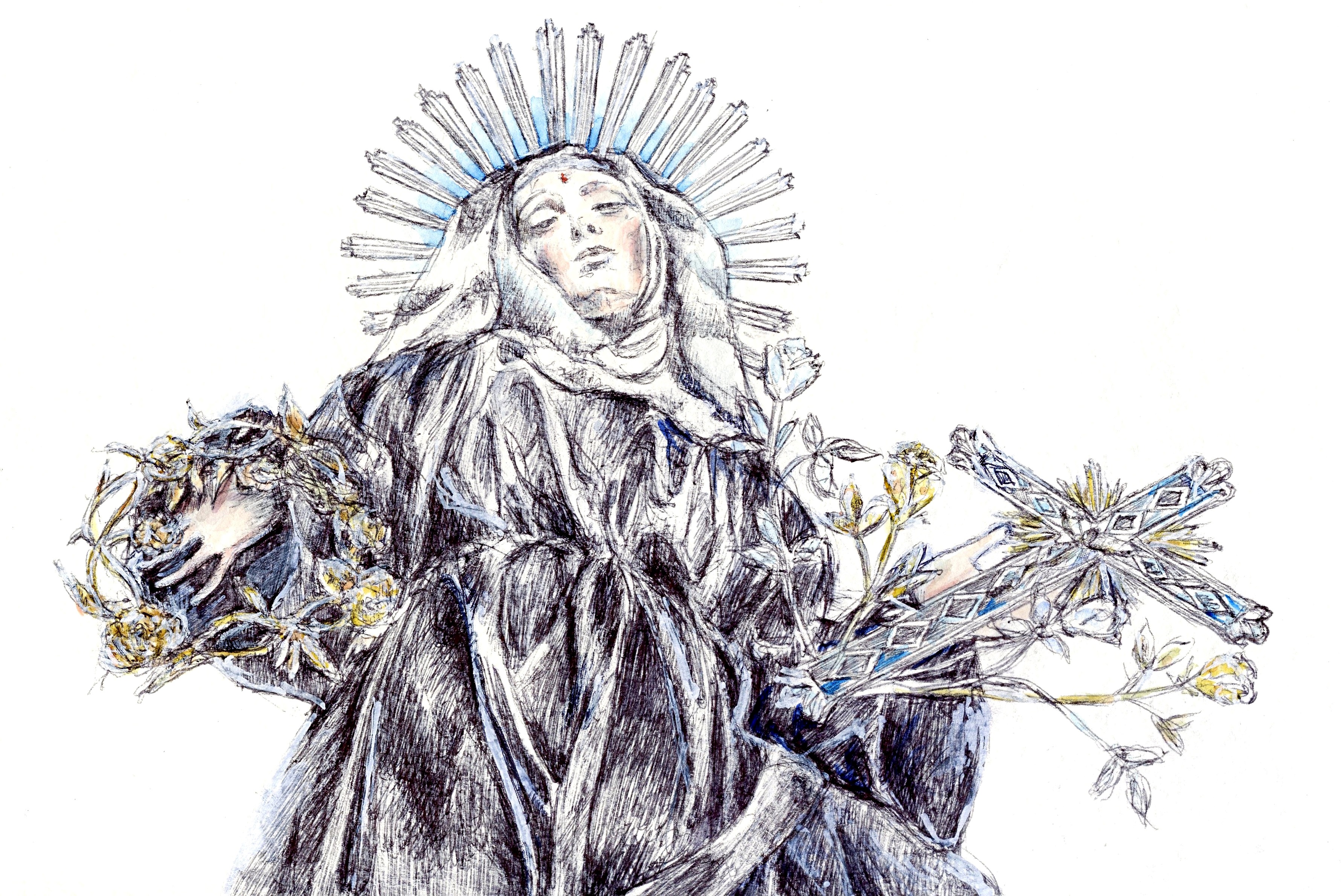
ST. RITA OF CASCIA

Today we celebrate the feast of St. Rita of Cascia (1381-1457), the patron saint of abused wives. We need her help.
Whether labelled the “perfect storm,” a “pandemic within a pandemic,” a “shadow pandemic,” “intimate partner violence,” or just “domestic abuse,” violence against women during the pandemic is on the rise.
According to Maryam Monsef, minister for women and gender equality, gender-based domestic violence has increased from 20% to 30% in some parts of Canada since the pandemic.
This increase in violence against women is scandalous but not surprising. These women are enduring closer prolonged contact with their abusers, fewer in-person opportunities to meet friends, family and other support systems. Moreover, it is predominantly women who have been losing jobs and income due to the pandemic. We often associate abuse with physical harm, but the abuse could also be emotional, sexual, virtual and financial.
This “shadow pandemic” where women are treated as objects to control is not just a Canadian calamity. The World Health Organization and the United Nations have sounded alarms globally. In some countries, there has been a five-fold increase in calls to help centres, a rate which mirrors the rise in reports of intimate partner violence due to shutdowns caused by COVID-19.
While on the rise, let’s remember that this is not just a pandemic problem either. Gender violence runs long and deep within the patriarchal fabric of our global society: worldwide, one in three women has experienced an act of violence. Every single night in Canada, the YMCA reports, some 3,000 women (often along with their dependent children) seek refuge in emergency shelters.
Married against her will to a horrible man, Rita of Cascia, born Margherita Lotti, suffered her spouse’s physical and emotional abuse, which included infidelities. To be sure, Rita’s steadfast love and faith in God throughout her 18-year ordeal – until her spouse died – is laudable.
What is not laudable is the way some Catholic websites today portray St. Rita as a “model wife” who responds to a husband’s violence with “humility, kindness, and patience.” Indeed, one site offers a prayer that would have women also “suffer with resignation the troubles of this life.”
These inanities are theologically suspect, as they suggest that violence toward a woman is “part of God’s plan for her life.” Moreover, they are dangerous to women seeking help. Accepting a painful reality does not mean a woman has to believe that it cannot be changed. To put forward – without any nuance – that remaining with kindness and patience in an abusive relationship is sinful.
It’s time we abandon such thoughtless language from Catholic parlance. Living in the 15th century, Rita had few to no options but to endure pain as only a saint can. To suggest her “endurance” be a model for wives today is irresponsible.
If we really want to honour St. Rita today, let’s put into action the practical suggestions outlined in the United States Conference of Catholic Bishops’ (USCCB) document, “When I Call for Help: A Pastoral Response to Domestic Violence Against Women.”* I am not an expert on the issue of violence against women, but I laud the document for its mantra, that “no person is expected to stay in an abusive marriage,” as well for its practical advice for parish first-line responders, be they priests, deacons or lay ministers.
First written in 1992, the document was revised in 2002. I wonder – since statistics indicate that we just don’t seem to get the message as a society – whether a 2022 version is in the making? Have we paid enough attention to conjugal violence here in Canada?
I suggest that the best way to celebrate the feast of St. Rita today would be to implement the suggestions listed in the USCCB’s document above and turn all our parish communities into safe havens for all women suffering intimate partner abuse.
Simon Appolloni is Associate Publishing Director at Novalis. He has a PhD in religion and environmental studies and a Master of Divinity. Simon finds meaning through music, sharing in community, and the pursuit of a just and sustainable world.
*When I Call for Help: A Pastoral Response to Domestic Violence against Women found here.
